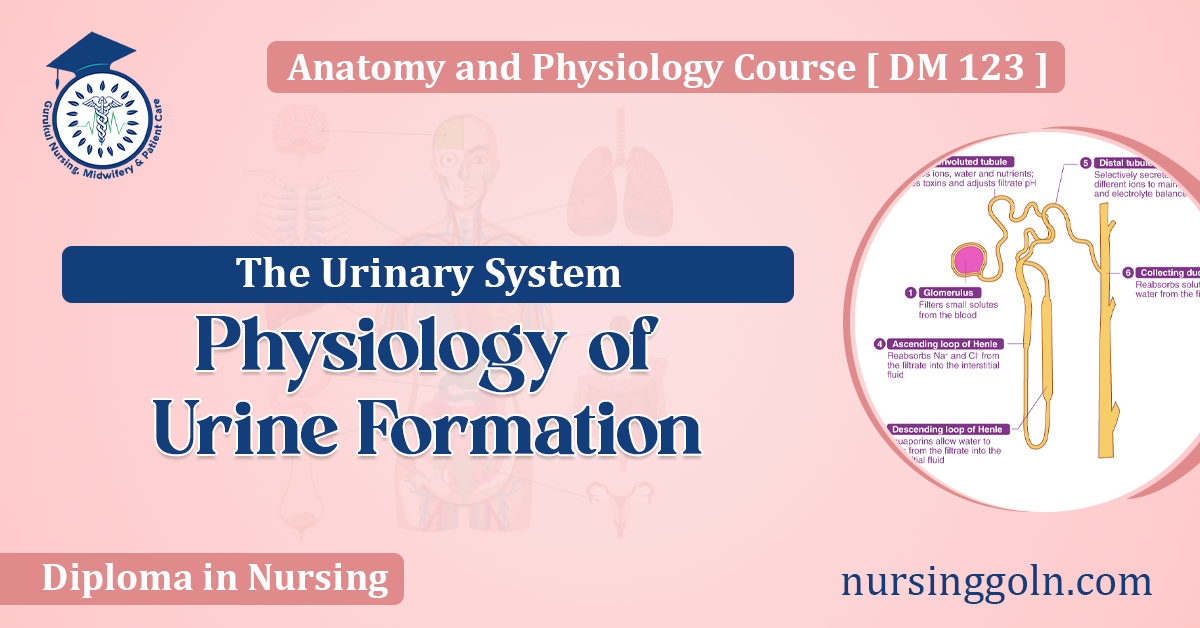Today our topic of discussion is ” Physiology of Urine Formation “. The formation of urine is a sophisticated process carried out by the kidneys, which involves filtration, reabsorption, secretion, and excretion. This vital function ensures the maintenance of homeostasis by regulating the volume and composition of body fluids. Urine formation is not merely a mechanical filtering process; it is a dynamic and selective method through which the body excretes waste products while conserving essential substances.
This article will delve into the intricate physiological mechanisms behind urine formation, exploring each stage in detail and examining how these processes are integrated within the urinary system to maintain internal balance and overall health.
Physiology of Urine Formation : The Urinary System
Filtration
Glomerular Filtration
- Description of glomerular capillary structure
- Filtration barrier components
- Determinants of glomerular filtration rate (GFR)
Filtrate Composition
- Constituents of the initial filtrate
- Factors influencing filtration selectivity
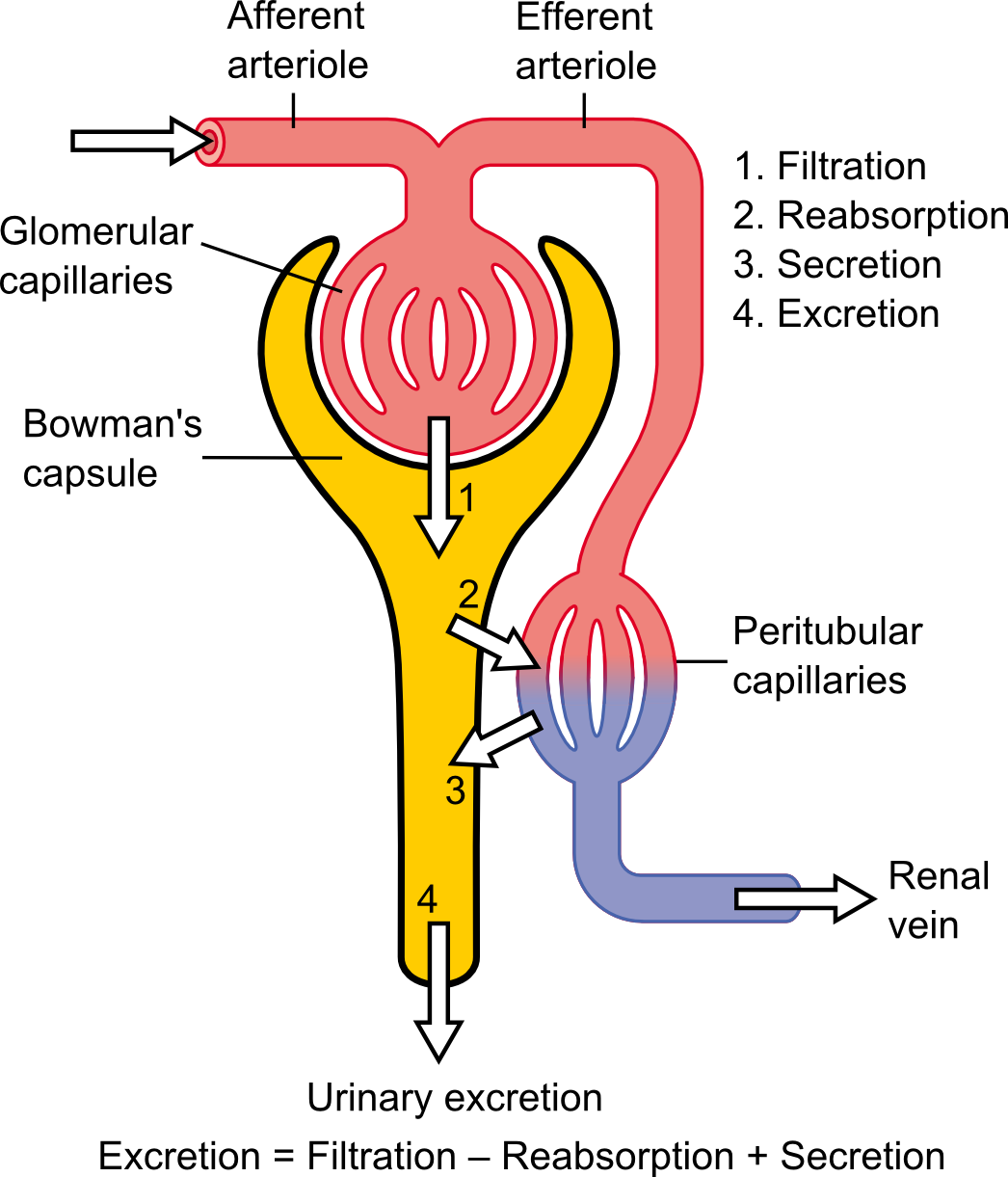
Reabsorption
Proximal Convoluted Tubule (PCT)
- Tubular reabsorption mechanisms
- Transport proteins and channels involved
- Osmoregulation and solute gradient establishment
Loop of Henle
- Countercurrent multiplication system
- Role in urine concentration
- Interactions between descending and ascending limbs
Distal Convoluted Tubule (DCT) and Collecting Duct (CD)
- Fine-tuning of reabsorption
- Hormonal regulation by aldosterone and antidiuretic hormone (ADH)
- Regulation of electrolyte balance and blood pressure
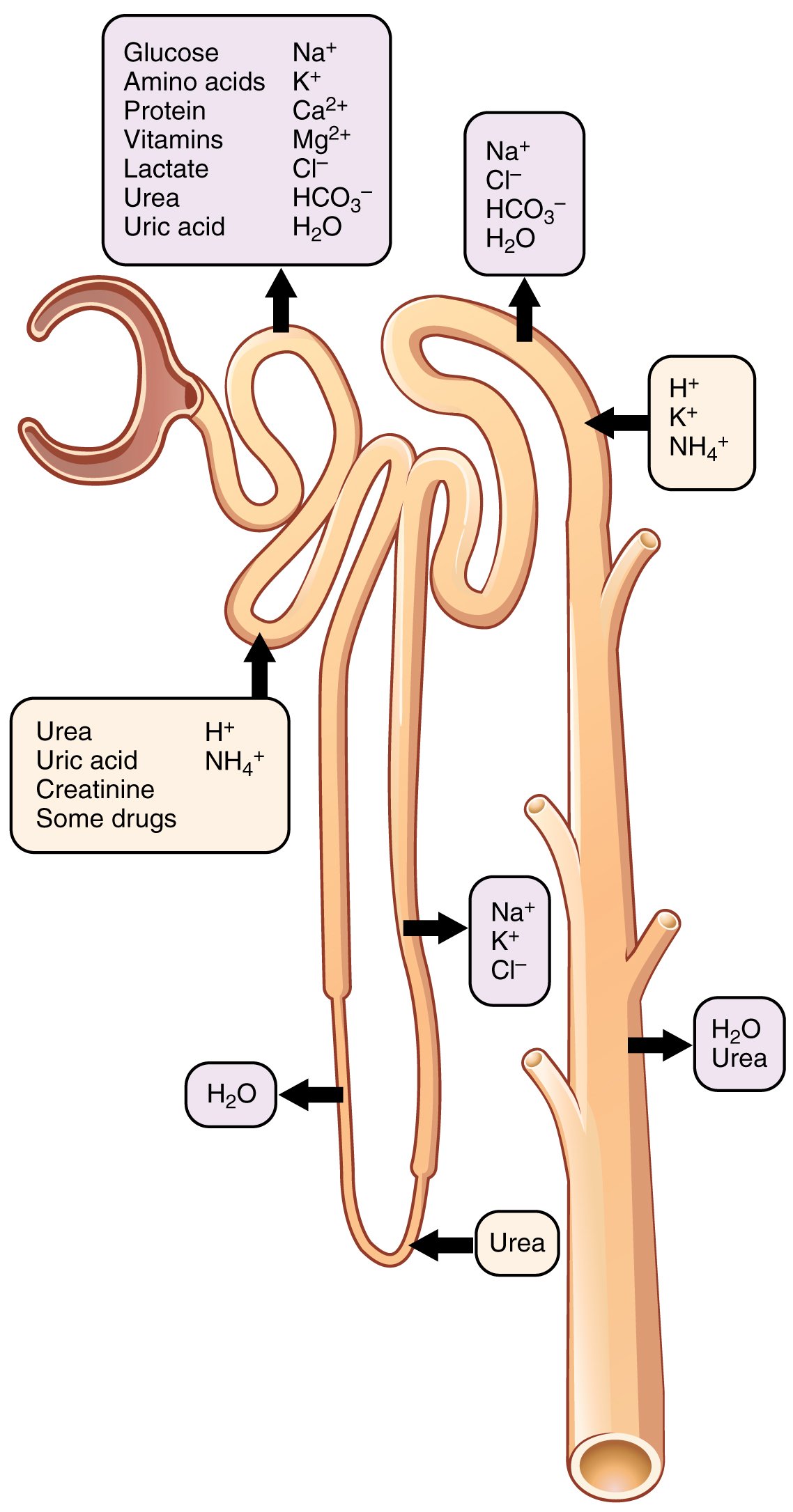
Secretion
Tubular Secretion Mechanisms
- Secretory role of PCT and DCT
- Acid-base balance through H+ and HCO3- secretion
Waste Removal
- Urea, creatinine, drug metabolites, and toxins
Excretion
Urine Flow Through Collecting Ducts
- Urine concentration and dilution mechanisms
- Influence of ADH on water permeability
Urine Passage
- Movement through the renal pelvis to the ureters
- Bladder storage and the role of the urethral sphincters
Regulation of Urine Formation
Neural Regulation
- Sympathetic nervous system influence on GFR and renal blood flow
Hormonal Control
- Role of renin-angiotensin-aldosterone system (RAAS)
- Natriuretic peptides and their effect on sodium and water excretion
- Influence of parathyroid hormone (PTH) on calcium reabsorption
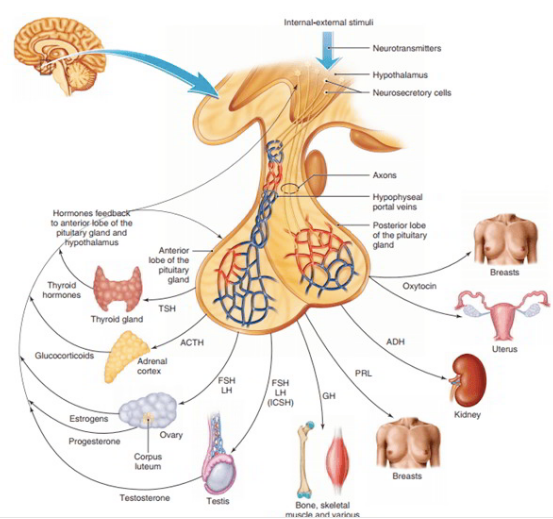
Integration of Systems
Cardiovascular Interactions
- Renal blood flow regulation
- Impact of blood pressure on urine formation
Metabolic Feedback
- Glucose and amino acids reabsorption
- Role in energy balance and metabolism
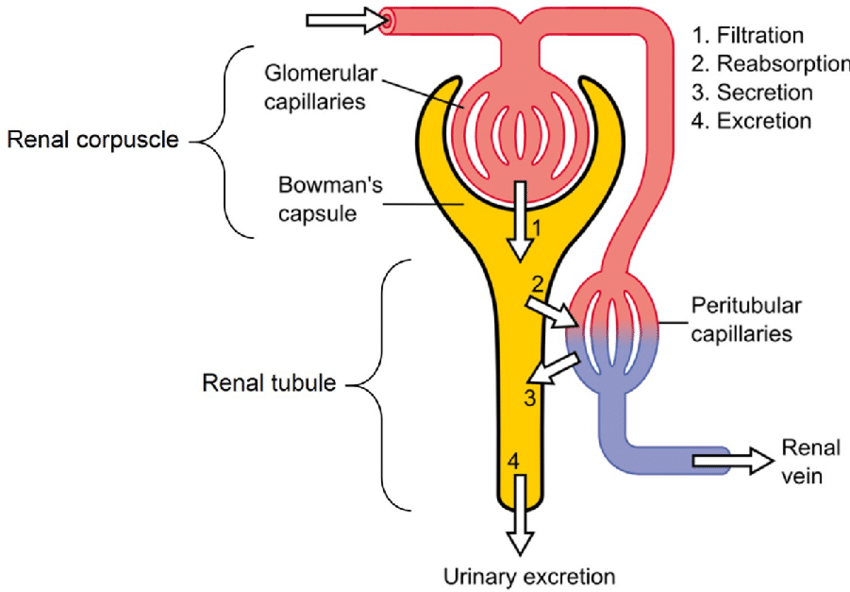
Pathophysiology of Altered Urine Formation
Acute and Chronic Renal Failure
- Impact on urine formation processes
- Mechanisms of compensatory adaptation
Diabetes Mellitus
- Effect on glomerular filtration and tubular reabsorption
Hypertension
- High blood pressure and its impact on nephron function
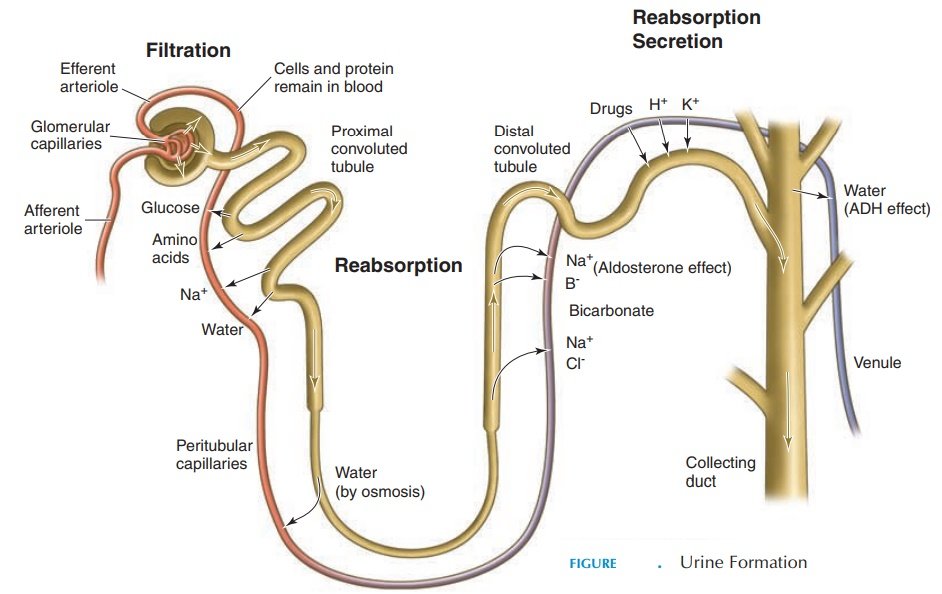
Diagnostics and Clinical Correlations
Urinalysis
- Diagnostic significance of urine composition
- Biomarkers of renal and systemic diseases
Imaging and Functional Assessment
- Methods for assessing kidney structure and filtration efficacy

Conclusion
The physiology of urine formation is a testament to the complexity and efficiency of the renal system. Through a series of finely tuned processes, the kidneys filter blood, reclaim vital nutrients, maintain a balance of electrolytes, and eliminate wastes, all of which contribute to the homeostatic regulation vital for survival. An understanding of these processes is essential for the diagnosis and treatment of renal disorders, making the study of urine formation central to nephrology and overall health maintenance.
Read more:
